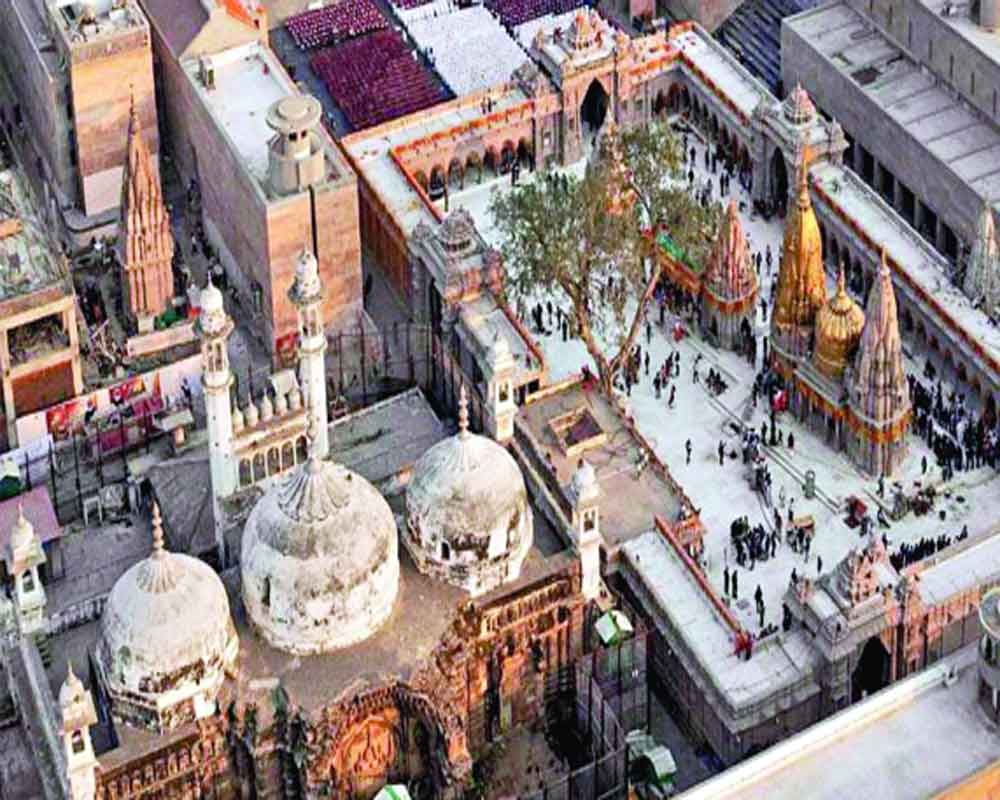Poet Allama Iqbal had called Lord Rama "Imam-e-Hind", and yet it took Hindus 45 years after Independence to make a serious attempt to recover his birthplace
Prime Minister Narendra Modi, while inaugurating the Swarveda Temple in Varanasi on December 18, right called for the restoration of cultural symbols hit by invading tyrants. The Babri edifice at Ayodhya was arguably the beginning of such a reconstruction.The poet Allama Iqbal had called Lord Rama “Imam-e-Hind”, and yet it took Hindus 45 years after independence before making a serious attempt to recover His birthplace. Whereas a proud and self-respecting nation should have retrieved within three or four years of becoming free. That the Hindus did not display their pride early enough was not only a case of delayed recovery but also a matter of poor communication.That the Muslims did not hand over the birthplace of Ramachandra meant that they did not realize how serious a matter it was for the Hindus. The latter have seldom communicated that to them, a temple is a residence of the divine. It is far more sacred than a mosque or church, which are only prayer halls. They can be shifted about without causing outrage. In fact, in Europe, churches are known to be even sold. A big church in Leicestershire was sold to the local Jain community, which then replaced it with its temple.Prophet Moses on Mount Sinai, while delivering his ten commandments, clearly stated: “Thee shall have no gravel image of thy Lord the god”. Moses also commanded: “Thee shall not take the name of thy Lord the God in vain”. Whereby, he asked the Jews not to expect to try to mingle with the divine in any way.It is in this spirit that Islam does not permit the making of any statue or image. This means a prohibition of what is normally referred to as spirituality. It is in this vein that neither a synagogue; nor a church or mosque is considered a residence of the divine. Not many Muslims realize that when a temple is desecrated a Hindu is mortally hurt, unlike the demolition of a prayer hall. Surely, a Hindu must clarify this, loud and clear. Instead, he prefers to indulge in litigation and long legal battles.Well before demanding Partition, Mohammad Ali Jinnah had made it clear to all Indians that Hindus and Muslims cannot co-exist in the same country. In March 1940, he told the Muslim League members at Lahore: Notwithstanding a thousand years of close contact, nationalities, which are as divergent today as ever, cannot at any time be expected to be transformed into one nation merely by the method of subjecting them to a democratic constitution and holding them forcibly together by the unnatural and artificial means of a British parliamentary statute. What the unitary government of India had failed to achieve in 150 years cannot be realized by the imposition of a central federal government. It is inconceivable that the fiat or the writ of a government so constituted can ever command willing and loyal obedience throughout the subcontinent by various nationalities, except using the armed force behind it.It is extremely difficult to appreciate why our Hindu friends fail to understand the real nature of Islam and Hinduism. They are not religions in the strict sense of the word, but are, in fact, different and distinct social orders. It is a dream that the Hindus and Muslims can ever evolve a common nationality. This notion of one Indian nation has gone far beyond the limits and is the cause of most of our troubles and will lead India to destruction if we fail to revise this misconception in time.
The Hindus and Muslims have different religious philosophies, social customs and literature. They neither intermarry nor interdine and, indeed, they belong to two different civilizations which are based mainly on conflicting ideas and conceptions. Their views on life and of life are different. It is also quite clear that Hindus and Muslims derive their inspiration, from different sources of history. They have different epics and different heroes in different episodes. Very often the hero of one is a foe of the other and likewise, their victories and defeats overlap. To yoke together two such nations under a single state, one a numerical minority and the other a majority must lead to growing discontent and the final destruction of any fabric that may be so built up for the government of such a state.As the rush of Hindu refugees from East Bengal after Partition was continually rising, even till 1948, Dr Syama Prasad Mookerji accompanied by Dr Rajkumari Amrit Kaur rushed to see Gandhi. Their mission was to appeal to the great man to accept Jinnah’s proposal for an exchange of populations. Gandhi rejected this appeal categorically by stating that Partition was on ‘territorial’ lines and not on ‘religious’ grounds. What an astounding thing to say! As a result, most Hindu leaders were hesitant in telling the people that Pakistan was for Muslims and Hindustan was for others. This meant that all communal issues stood settled and India was now predominantly a Hindu country. On the contrary, the repeated use of the word ‘secular’ has confused Muslims to this day. They, therefore, do not feel embarrassed at holding on to sacred properties that were wrongly and forcibly acquired from the Hindus. Didn’t the Hindus tail to communicate clearly and properly?
(The writer is a well-known columnist, an author and a former member of the Rajya Sabha. The views expressed are personal)


























